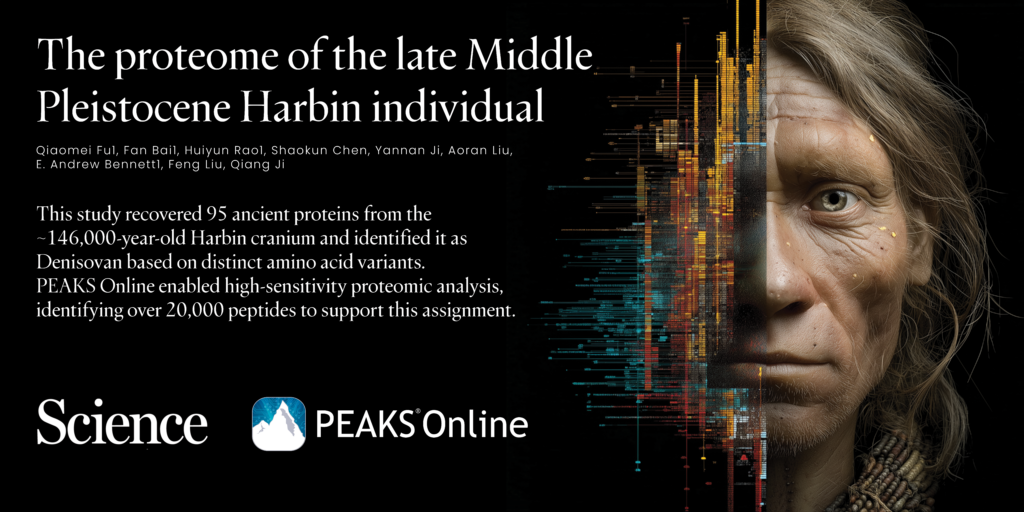
A recent publication in Science has identified the Harbin cranium, a remarkably well-preserved fossil from northeastern China, as belonging to a Denisovan individual. Dated to at least 146,000 years ago, this cranium represents the most complete Denisovan-associated specimen analysed to date, offering new insight into the physical characteristics of this ancient human group.
Because ancient DNA was not preserved in the specimen, the researchers turned to paleoproteomics to investigate its identity. Proteins were extracted from the petrous portion of the skull and analysed using mass spectrometry. The data were processed with PEAKS Online, which enabled the identification of over 20,000 peptides and 95 endogenous proteins. Several of these proteins contained amino acid variants that matched those previously found in Denisovan genomes, allowing the team to make a confident taxonomic assignment.
This study marks the first time Denisovan molecular markers have been directly linked to a complete cranium, bridging the gap between genetic data and skeletal morphology. It also demonstrates the value of proteomic analysis in cases where ancient DNA is not recoverable, and reinforces the growing role of protein-based methods in human evolutionary research.
Read the full article in Science: https://doi.org/10.1126/science.adu9677


Leave a Reply
You must be logged in to post a comment.